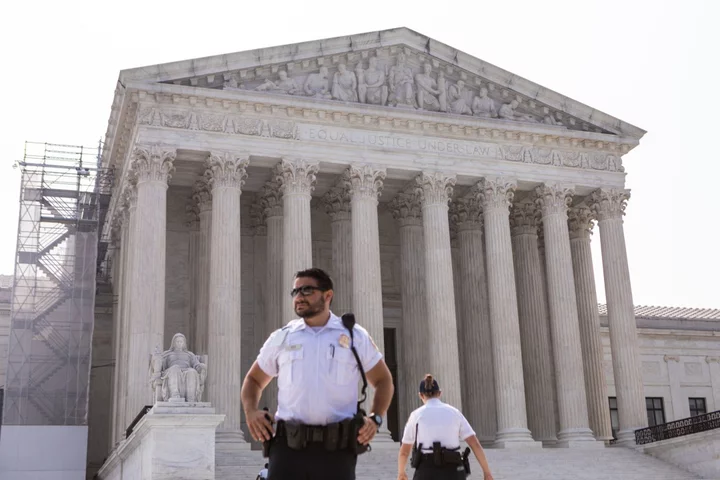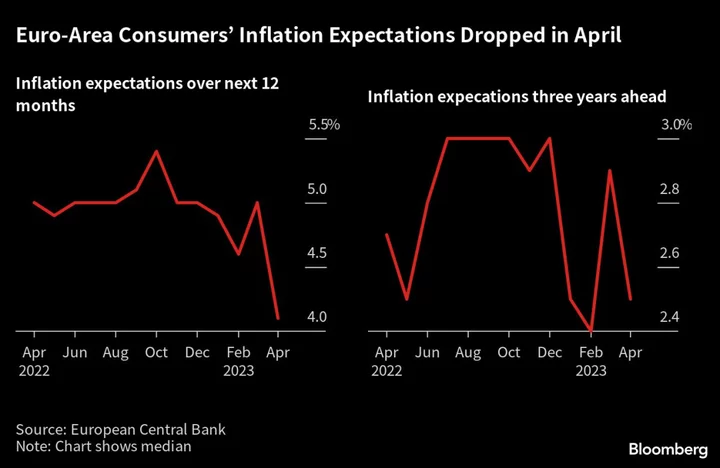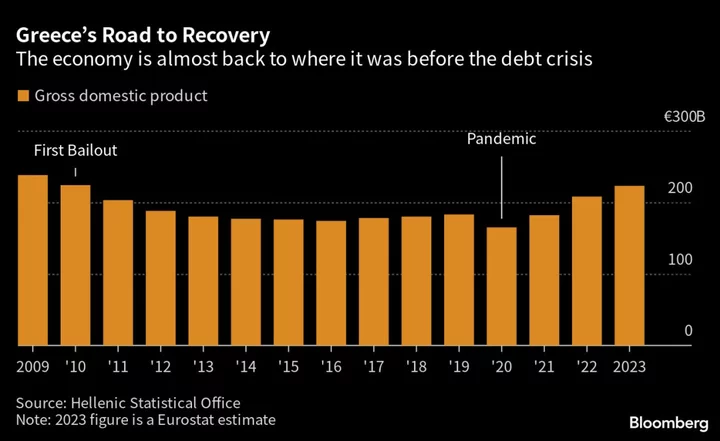The US Supreme Court signaled a reluctance to strike down the federal gun ban for people subject to domestic violence restraining orders.
Hearing arguments in Washington, several members of the court’s conservative majority suggested they didn’t read the Constitution’s Second Amendment as going so far as to protect the gun rights of people found to be dangerous.
“You don’t have any doubt that your client’s a dangerous person, do you?” Chief Justice John Roberts asked the lawyer for Zackey Rahimi, the Texas man challenging the law. Prosecutors say Rahimi has a long history of violent behavior, much of it after a judge imposed a restraining order to protect a former girlfriend he was accused of attacking.
The case is the high court’s first test of a year-old ruling that strengthened Second Amendment protections and established a constitutional right to carry a handgun in public. That decision said gun laws can survive only if the government can show a history of similar, or at least analogous, restrictions.
At the same time, the court reiterated that some types of firearms restrictions are constitutional, leaving uncertainty about where exactly the legal line is.
Gun rights and gun violence are among the country’s most divisive and emotional issues. More than 36,000 people have died in the US as a result of shootings this year, according to Gun Violence Archives, which tracks firearm-related incidents. The argument took place 13 days after a gunman killed 18 people in a shooting spree in Lewiston, Maine.
‘Heartland’ Case
As supporters of gun restrictions demonstrated outside the court, the justices suggested that the case before them wasn’t all that difficult. The case centers on a 1994 law that has been used to block more than 77,000 gun sales in the past 25 years. The court is scheduled to rule by the end of June.
Supporters of the law include Everytown for Gun Safety, which is backed by Michael Bloomberg, founder and majority owner of Bloomberg LP.
Justice Amy Coney Barrett, who like Roberts was in the 2022 majority, characterized domestic violence as a “heartland” example of a dangerous situation. She later said the woman who sought the protective order “did submit a sworn affidavit giving quite a lot of detail about the various threats.”
As a federal appeals court judge in 2019, Barrett wrote that legislatures have power to bar gun possession by people who are dangerous but not by those who aren’t.
Another conservative, Justice Neil Gorsuch, stressed that Rahimi was aiming to invalidate the entire law rather than just arguing it couldn’t be constitutionally applied to him. Gorsuch pointed to the high bar the court has established for that sort of challenge. “We have to ask: Is it unconstitutional in any application?” he said.
The newest justice, Ketanji Brown Jackson, questioned the legitimacy of the history-focused test the court set up last year, pointing to laws that once banned possession of firearms by slaves and Native Americans.
‘Certain People’s History’
“I’m a little troubled by having a history and traditions test that also requires some sort of culling of the history so that only certain people’s history counts,” Jackson said.
Solicitor General Elizabeth Prelogar, the top Supreme Court lawyer for President Joe Biden’s administration, declined to directly criticize the 2022 test or its requirement of a historic analogue. But she said some lower courts were being overly rigid, essentially requiring the government to find a “dead ringer” in history to justify a contemporaneous gun restriction.
In striking down the domestic-violence law, the 5th US Circuit Court of Appeals said it was “an outlier that our ancestors never would have accepted.”
Prelogar said the 2022 ruling “recognized that Congress may disarm those who are not law-abiding, responsible citizens.”
Rahimi’s lawyer, public defender Matthew Wright, argued that the government “is looking down the dark well of American history and seeing only a reflection of itself in the 20th and 21st century and saying that’s what history shows.”
Not Convinced
Few if any justices indicated they were convinced by Wright’s position.
“I’ll tell you the honest truth, Mr. Wright,” Justice Elena Kagan said near the end of the session. “I feel like you’re running away from your argument, you know, because the implications of your argument are just so untenable that you have to say, ‘No, that’s not really my argument.’”
Even if the Supreme Court upholds the domestic-violence law, tougher cases are on the way for gun-regulation advocates. The Justice Department is also defending weapons bans for people convicted of felonies – including nonviolent ones – and those who use illegal drugs. On both issues, federal appeals courts ruled against the government, and the Biden administration has already turned to the Supreme Court.
The drug case involves the same provision used by a federal grand jury to indict Hunter Biden, the president’s son, for allegedly possessing a gun while addicted to a controlled substance. Biden’s lawyers have indicated they will argue that the provision is unconstitutional.
The clash could also be a prelude to fights over so-called assault weapons, large-capacity magazines and minimum-age gun ownership laws.
The case is United States v. Rahimi, 22-915.
(Adds in seventh paragraph that court will rule by late June.)









